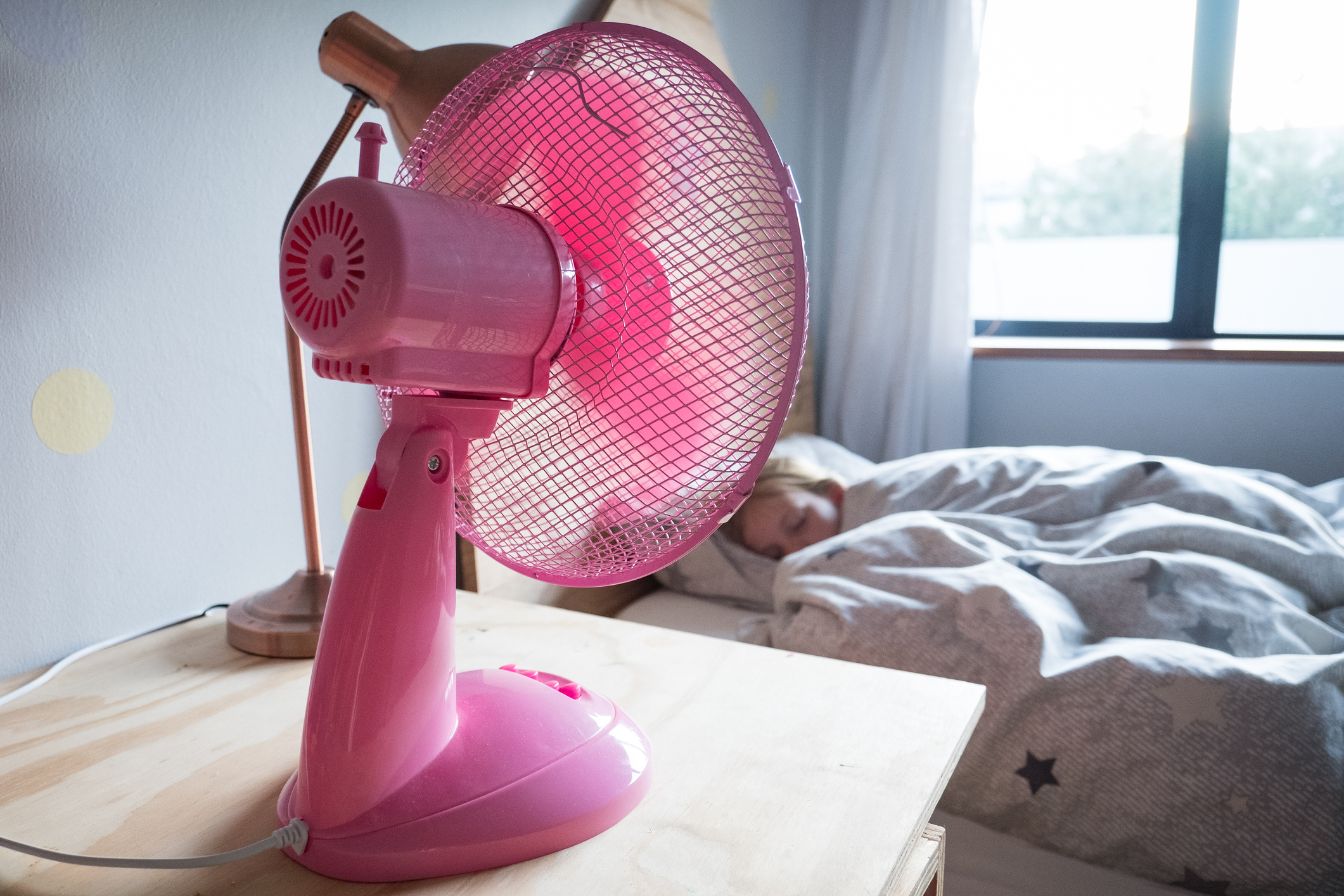How much does it cost to run a fan and can you have one in a baby's room?
Knowing how much it costs to run a fan is essential when the weather is warming up and energy bills are still high

With temperatures rising as we get closer to the summer and energy prices still high, it's no wonder people are wondering how much it costs to run a fan.
Families have been worried about how much their energy bills will cost ever since the energy crisis began, and even though the energy price cap has dropped as of July, the price we pay for our energy is still much higher than before energy prices went up.
As prices are still expensive, the best advice is to reduce how much energy you use, but when the weather heats up (and if predictions of a heatwave come to pass), we can find ourselves using more energy in our attempts to keep ourselves and our families cool. But how much does it actually cost to run a fan and how can we make sure we're using them safely and effectively?
How much does it cost to run a fan?
It costs between 8p and 16p per day to run a fan, but the price will ultimately depend on the kind of fan you have, how much power it uses, how long you use it for and how much you pay for your electricity. If you have multiple people in your home and multiple fans running at a time, this will also affect the cost.
For example, a 40W desktop table fan, like this one, uses 0.04kWh (kilowatt hours) of electricity, which means if you were to run it for an hour, it would cost you about a 1p. That's based on the current unit price of electricity under the Energy Price Guarantee being 30p/kWh hour. To run it for eight hours, either during the day or overnight, it would cost you about 8p per day. A tower fan might have a similar wattage and therefore cost you a similar amount to run.
A larger more powerful fan, like this metal floor fan, will cost more to run. Using this example 80W model, this would use 0.08kWh of electricity to run for an hour, which works out as 2p an hour. To run it for eight hours a day, it'd cost you 16p.
In comparison, if you were tempted to buy a portable air conditioning unit instead, you could pay around 71p per hour to run it, depending on the size of unit. If you were to run that for eight hours a day, you'd be looking at £5.68 per day! Air con units are much more expensive to run as they use power to cool the air, as well as circulate it, where a normal fan only uses power to circulate air around the room.
Parenting advice, hot topics, best buys and family finance tips delivered straight to your inbox.
To work out how much your specific fan costs to run, just divide the wattage (which you should be able to see written on a label on the fan, alternatively, you can check the box or Google the fan name to find out) by 1,000. This will tell you how many kilowatt hours of electricity your fan uses. Then you multiply that by the price you pay per kilowatt of electricity, which you should be able to see on your latest energy bill. If you're not sure, you can use the 30p set by the price cap.
Is it ok to have a fan on in a baby's room?
If you're thinking about using a fan in your baby's bedroom, there are specific things all parents should consider to ensure your little one is safe. Goodto.com's parenting expert and deputy editor, Heidi Scrimgeour says: "The risk of SIDS is higher when babies get too hot so it's a good idea to pop a fan in your baby's bedroom to help regulate the room temperature when the weather warms up - and in fact, using a fan is associated with lowering the risk of SIDS.

"However, it's still very important to follow safe sleep guidance even when you're using a fan. Before you buy a fan for a child's bedroom, think about whether your baby prefers sleeping in silence or likes white noise. If the latter, a noisy fan could actually help them to sleep!
"Make sure your baby cannot touch the fan, and always tuck any cords safely out of reach. Position the fan away from your baby so it's not directly blowing onto your child but rather circulating the air in the room. Choose one that's not going to topple over easily if knocked and ideally go for a bladeless fan that can't hurt little fingers. Finally, a fan with a child-lock is essential if it's going in a baby's room - especially if there are other children in the house whose curiosity could easily get the better of them."
How to reduce the cost of running a fan
A fan is one of the cheapest appliances to run, but with energy bills still so high, it's important to reduce energy usage wherever possible to avoid wasting money.
1. Only use it when you need it
Avoid leaving fans on in rooms you aren't in, it's unlikely to cool a really hot room down drastically, so it's just wasting energy. To prevent rooms from getting too hot, try pulling the curtains closed instead. In the height of the summer, keeping your windows and curtains closed can also help to keep some of the heat out, meaning less reliance on fans.
If it's not too hot, then simply opening your windows and trying to get a through-flow of air through your home can help your home feel cooler.
2. Choose one with a timer
If you're warm at night and want to sleep with a fan on, it's unlikely that you will need it on all night. Some fans come with a built-in timer so it will turn off automatically after 90 minutes or so when you've fallen asleep.
If your existing fan doesn't have a timer, you could try using it with a smart plug so you can control it using your mobile phone.
3. Think about speed
Most fans come with various speed settings, and the faster the speed setting the more power it uses and the more expensive it is to run. Stick to the lower settings where you can to keep your energy usage low.
You'll find that lower speed settings are the quietest too which can make them much more suitable for a baby's bedroom.

4. Maintain it well
Any appliance, including fans, are there most energy efficient when they are in good working order, so it's important to keep them clean and well maintained.
If any fan has frayed or exposed wires, then best to invest in a new one as this can be a serious safety hazard.
How much does a new fan cost?
For a new fan you can pay anything from around £15 up to hundreds of pounds, but it will ultimately depend on the type of fan you buy. Desktop fans tend to be the cheapest to buy and can be the easiest to store and move around as you need to (these can cost from around £15-25). Floor fans and tower fans are usually a bit more expensive but are often more powerful. Expect to pay from around £25 up to £100 for these. At the top end of the price range, you'll find your super-duper Dyson fans and portable air con units.
Before you buy a new fan, or replace an existing one, think carefully about where and how you want to use it. If you need it for hot bedrooms at night, then a desktop fan should be fine, but if you haven't got suitable space to stand it, then a floor standing tower fan might be a better bet.
Sarah is GoodtoKnow’s Money Editor. After Sarah graduated from University of Wales, Aberystwyth, with a degree in English and Creative Writing, she entered the world of publishing in 2007, working as a writer and digital editor on a range of titles including Real Homes, Homebuilding & Renovating, The Money Edit and more. When not writing or editing, Sarah can be found hanging out with her rockstar dog, getting opinionated about a movie or learning British Sign Language.